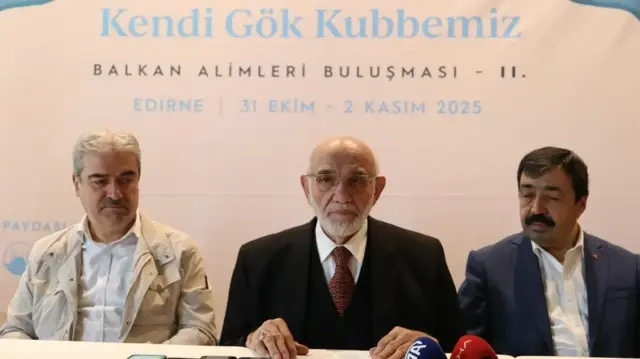Balkan Islamic scholars urge Muslim unity to stop Gaza genocide

Islamic scholars and religious leaders from across the Balkans convened in Edirne, Türkiye, calling for unified Muslim action to halt Israel’s violence in Gaza. The final declaration of the Second Balkan Scholars Meeting condemned international double standards and urged concrete steps to support Palestinians, while also emphasizing the protection of moral and family values in Muslim societies.
Religious leaders and scholars from over a dozen Balkan regions gathered in Edirne, Türkiye, for the Second Balkan Scholars Meeting, stressing the critical need for Islamic unity and intensified global efforts to end the humanitarian crisis in Gaza. Participants from countries including Bosnia and Herzegovina, Kosovo, Albania, Serbia, and North Macedonia discussed challenges facing Muslim communities, with a sharp focus on Israel’s ongoing military campaign in Palestine.
Call to Stop “Genocide” in Gaza
Nasrullah Hacimuftuoglu, head of the Foundation for Islamic Scholars, read the meeting’s final declaration, which described Israel’s actions in Gaza as genocide and criticized Western nations for applying double standards toward human rights. The statement urged Muslim countries to move beyond rhetoric and take decisive, practical measures to stop the violence and support Palestinian rights.
Strengthening Civil Initiatives and Family Values
In addition to addressing Gaza, scholars highlighted the importance of civil initiatives such as the “Freedom Flotilla” as forms of peaceful resistance. The meeting also covered social issues, with Hacimuftuoglu warning against systematic attempts to undermine moral and family values through media, law, and education. He described the family as both a religious and moral institution requiring spiritual and material support.
Role of Scholars in Balkan Muslim Communities
The closing remarks emphasized the responsibility of Islamic scholars and leaders in promoting social harmony and preventing provocations, especially in religiously diverse Balkan societies. Participants agreed to hold such meetings more frequently to foster solidarity and develop coordinated responses to political and cultural challenges affecting Muslims in the region.
Reklam yükleniyor...
Reklam yükleniyor...







Comments you share on our site are a valuable resource for other users. Please be respectful of different opinions and other users. Avoid using rude, aggressive, derogatory, or discriminatory language.